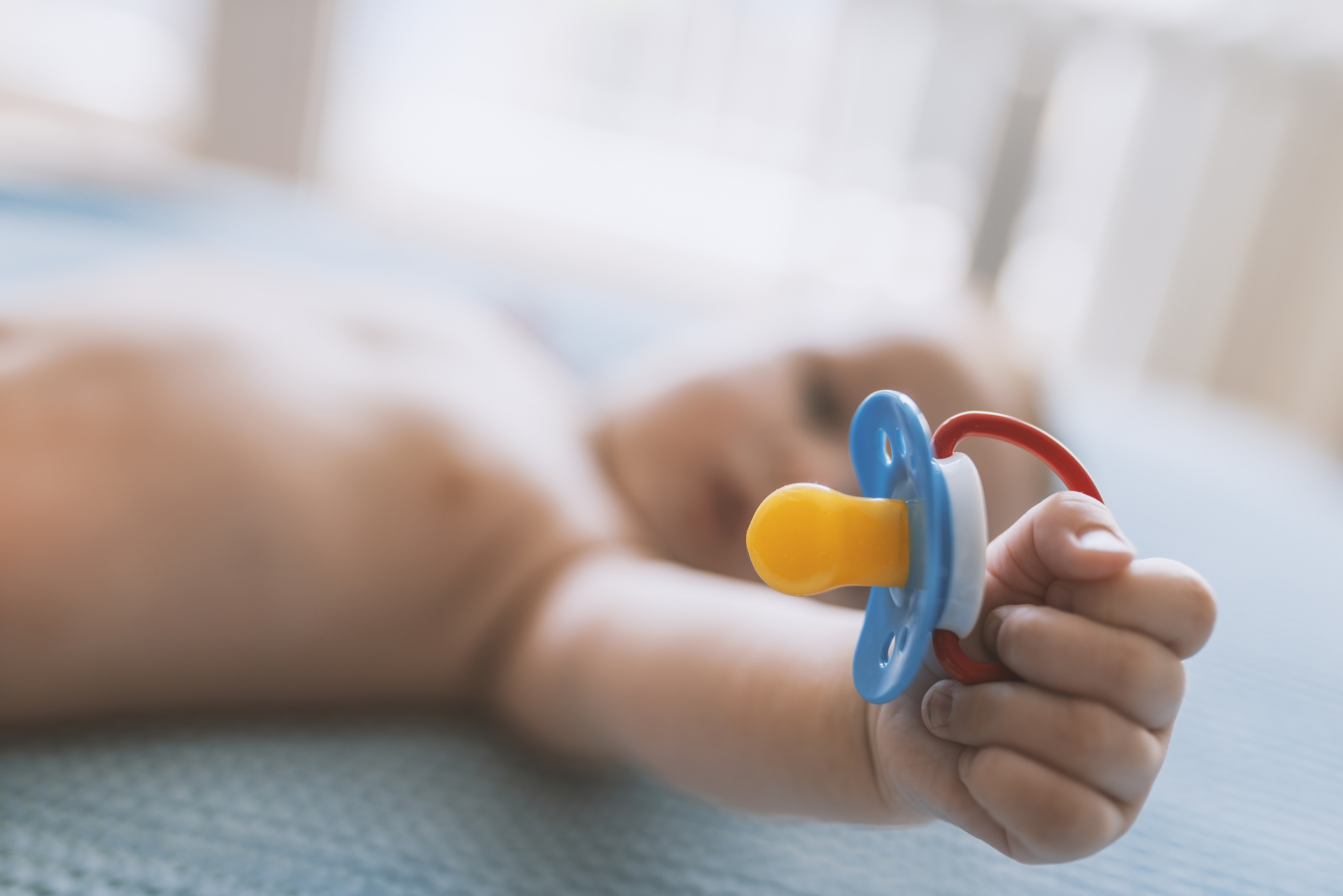Signs It’s Time To Replace Your Dentures
Dentures can be life-changing for those who have lost some or all of their natural teeth. A good quality denture can restore your ability to eat, speak, and smile with...

When it comes to pacifiers, you may hear lots of advice, and it can be tough to know what to do. On one hand, pacifiers can be a helpful tool for soothing a fussy baby. On the other, prolonged pacifier use can lead to dental problems down the line.
If you’re looking for tips on how to wean your child off of their pacifier, you’re in the right place. We’ll discuss the dangers of prolonged pacifier use and provide practical tips for helping your child stop using their pacifier.
Even a pediatric dentist can admit there are some potential positives. First, studies suggest that pacifiers can significantly reduce the risk of sudden infant death syndrome (SIDS) during naps and nighttime sleep. This may be a worthwhile reason to offer your child a pacifier when they are a baby. The risk of SIDs significantly decreases around the 8-month mark, with experts recommending that parents take safety precautions up until their child’s first birthday.
One thing that is obvious to a lot of parents is that a pacifier can act as a soothing mechanism. And, for some children, the pacifier becomes more than just a soothing tool; it turns into a comforting companion. That’s why it’s important to be empathetic when helping your child to wean.
One often overlooked potential benefit is that if a child is offered a pacifier, they may learn to use that rather than sucking their thumb. When it comes time to wean, you can remove a pacifier to help the transition.
According to the American Dental Association, prolonged pacifier use can cause:
The American Academy of Pediatric Dentists says that pacifiers should be removed by age 3, and the American Academy of Pediatrics agrees, recommending ages 2-4. Many dentists will tell you that sooner is better.
While there may be some benefits to pacifier use in the early months, eventually, the dangers of prolonged pacifier use can outweigh them, and it will be time to wean. Here are some tips to help you get started.
Get ahead of the game by establishing a regular bedtime routine. Make sure there are other steps leading up to bed that will remain the same after the pacifier goes away. Bathtime, tooth brushing, and reading a story are great choices. Bonus if you find books to read your child about giving up the pacifier a few weeks before it is time.
Going cold turkey on the pacifier can be tough for both you and your child. Instead, try to wean your child off of their pacifier slowly. You can start by limiting pacifier use to certain times of the day, such as nap time or bedtime.
Remember that every child is different. If your baby or toddler gives you signs that a clean break will be well tolerated, by all means, rip off the Band-Aid!
Many children benefit from a combination approach. You can begin by limiting use to sleep time only. Then, when the time is right, remove the pacifier for good
If your child is having a hard time giving up their pacifier, try not to replace it by leaving a bottle with your child at bedtime. Instead, offer alternative comfort items, such as a stuffed animal or special blanket (after 12 months of age only).
Make weaning your child off of their pacifier a team effort. If your child is old enough, explain to them that it’s important to stop using the pacifier and ask for their help in finding alternatives. Pair the alternative with bedtime before removing the pacifier so your child has an opportunity to develop an attachment that may help bring comfort.
Finally, be sure to offer plenty of positive reinforcement when your child makes progress in weaning off of their pacifier. Praise them for their efforts and offer small rewards for milestones achieved. If they’ve already had a visit from the tooth fairy, you can even introduce the “binky fairy” – the tooth fairy’s friend who comes to take pacifiers and gift them to other kids in need.
It’s never too early to start thinking about your child’s dental health. By taking steps to wean your child from their pacifier, you’re setting them up for a lifetime of healthy teeth and gums.
If you have any concerns about your child’s oral health, be sure to schedule an appointment with our office today.